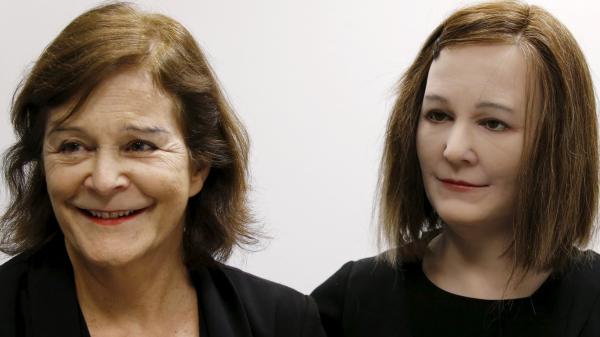
Android built to care for dementia sufferers
A remarkably lifelike robot could replace human carers in keeping dementia patients company. This breakthrough could have an extraordinary impact in the future but it’s worth stressing that its development is still in its infancy stages. The care provided through Assisted Living at Rhoda Goldman and many other places remains just as important today as it has in the past.
It is certainly true that technology can help patients with dementia to better cope with their circumstances. But human assistance would still be valued to provide care to such patients. The staff of The Chelsea at Tinton Falls senior living center (www.chelseaseniorliving.com/locations/new-jersey/tinton-falls/) are known to cater to the diverse needs of the elders, thereby proving the importance of humane treatment required for dementia patients.
However, all kinds of innovations that can prove to be beneficial for patients suffering from dementia, must be welcomed. If you know people who are going through it, you can try different things like occasionally looking for gifts for people with dementia or making their surroundings more comfortable for them so that they can better adjust to it. Patience is always the key to handling people with dementia. After all, living with dementia, despite its inconveniences, is not just difficult for the caregiver, but more so for the patient. The cognitive difficulties faced, memory problems and other issues would be both taxing and traumatizing.
Additionally, understanding How assistive technology works could be beneficial in taking care of patients suffering from such conditions. The use of cognitive aids, for instance, may help people who have issues related to memory, attention, as well as thinking. As it can get difficult for patients to remember people and things in general, their dependence on external support may proportionately increase as well. Therefore, the utilization of newer technologies to that end may simplify palliative care for patients suffering from Alzheimer’s and other similar diseases.
That said, it is almost time to discuss Nadine! Nadine is an android created by a laboratory in Singapore whose software allows her to converse with real people, recognize their faces, and even remember what they spoke about last time they met, as well as change her expressions to show emotions.
The software is similar to Siri, the personal assistant used in iPhones, although Nadine also has arms that she can wave around to emphasise a particular point.
The android was created at the Institute of Media Innovation at Nanyang Technological University in Singapore by a team headed by Nadia Thalmann, who modelled the robot’s face, hair and height on herself.
Nadine started off working as a receptionist at the institute – even robots, it seems, have to do a stint as an intern – but Professor Thalmann hopes that one day the robot could look after people suffering from dementia: holding simple conversations with them, telling stories or even playing basic games.
“If you leave these people alone they will be going down very quickly. So these people need to always be in interaction,” Professor Thalmann, who has spent three decades developing software for virtual humans, said.
The team is also in the early stages of developing emotive robots that could one day be used to play with children and alert absent parents or nannies of any problems. To give them an educational slant, the robots could be programmed with several languages to help to teach the children in their care.
“A child has toys but they are usually passive,” Professor Thalmann said. “This robot will be an active toy that interacts with the child. It will be able to remember what the child likes.”
